8 Best AI Chatbot Tools (2025): Transform Your Business with Intelligent Automation
In 2025, AI chatbot tools 2025 are transforming how businesses engage customers The digital landscape has undergone a revolutionary transformation, with artificial intelligence leading the charge in reshaping how businesses interact with customers. In 2025, AI chatbot tools have evolved from simple automated responses to sophisticated conversational AI platforms that deliver personalized, human-like interactions across multiple channels. By 2025, AI is expected to handle 95% of all customer interactions, underscoring the massive shift toward intelligent automation in customer service and business operations.
The adoption of AI chatbot technology has accelerated dramatically, with over 67% of consumers worldwide having engaged with a chatbot for customer support. This surge in adoption reflects the growing demand for instant, 24/7 support that modern customers expect from brands across all industries. From e-commerce platforms to healthcare providers, real estate agencies to financial institutions, businesses are leveraging AI chat automation to streamline operations, reduce costs, and enhance customer satisfaction.
Today’s best AI chatbot tools offer far more than basic question-and-answer functionality. Modern conversational AI platforms integrate seamlessly with existing business systems, provide advanced analytics, support multiple languages, and deliver contextual responses that feel authentically human. These intelligent systems can handle complex customer inquiries, process transactions, schedule appointments, qualify leads, and even provide technical support – all while learning and improving from every interaction.
The business case for implementing AI chatbot solutions has never been stronger. In 2025, 80% of customer service and support organizations will use generative AI to improve agent productivity and overall customer experience, highlighting the strategic importance of these tools in modern business operations. Companies that embrace AI chatbot technology are reporting significant improvements in response times, customer satisfaction scores, and operational efficiency.
Whether you’re a small business owner looking to automate customer support, a digital marketer seeking to enhance lead generation, or an enterprise decision-maker planning your AI strategy, selecting the right chatbot platform is crucial for success. The following comprehensive guide examines the eight best AI chatbot tools available in 2025, comparing their features, pricing, and ideal use cases to help you make an informed decision.
This guide explores the top AI chatbot tools 2025 has to offer for businesses looking to streamline support and automate customer service.
1. ChatGPT for Business: The Pioneer in Conversational AI
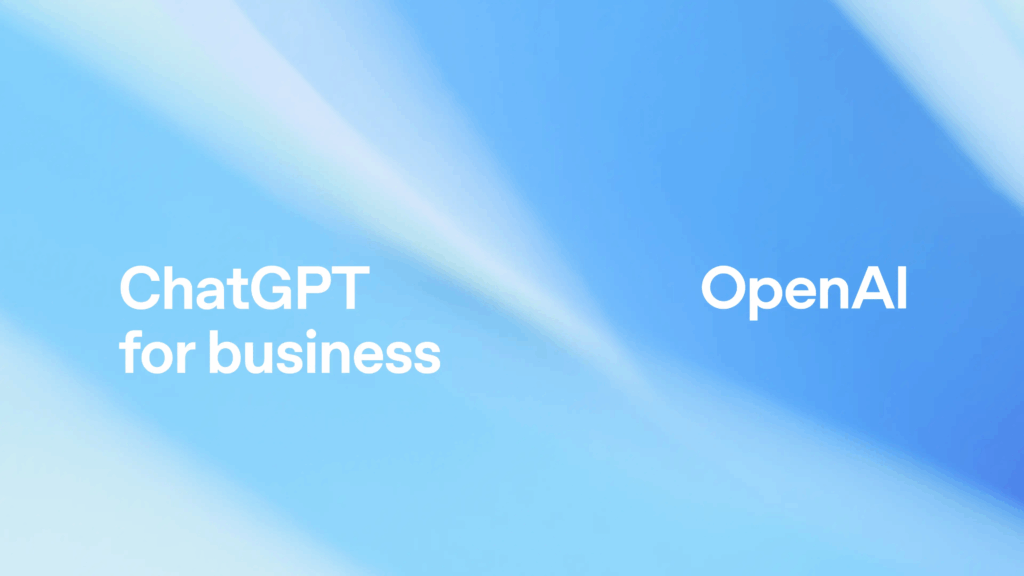
ChatGPT remains the market leader in AI chatbot technology, continuing to set the standard for natural language processing and conversation quality. OpenAI’s flagship platform has evolved significantly since its launch, now offering specialized business features that make it one of the most versatile AI chatbot apps 2025 has to offer. The platform’s ability to understand context, maintain conversation flow, and provide accurate, helpful responses across virtually any topic makes it an invaluable tool for businesses of all sizes.
ChatGPT is one of the most widely used AI chatbot tools 2025 for scalable business support and content interaction. For businesses, ChatGPT offers customizable AI assistants that can be trained on specific company data, policies, and procedures. This customization capability transforms the general-purpose chatbot into a specialized customer service representative that understands your brand voice and can handle industry-specific inquiries. The platform’s integration capabilities allow businesses to connect ChatGPT with existing CRM systems, help desk software, and other business tools, creating a seamless workflow that enhances both agent productivity and customer experience.
The pricing structure for ChatGPT Business starts at $20 per user per month, with enterprise plans offering additional features like enhanced security, administrative controls, and priority support. This pricing model makes ChatGPT accessible to small businesses while providing the scalability and advanced features that large enterprises require. The platform’s reliability and consistent performance have made it a trusted choice for companies ranging from startups to Fortune 500 organizations.
ChatGPT’s strength lies in its versatility and ease of implementation. Unlike specialized AI customer service software that requires extensive configuration, ChatGPT can be deployed quickly and begin providing value immediately. The platform’s continuous learning capabilities ensure that responses improve over time, making it an excellent long-term investment for businesses looking to enhance their customer service capabilities with minimal technical overhead.
2. Claude AI: Advanced Reasoning for Complex Business Scenarios
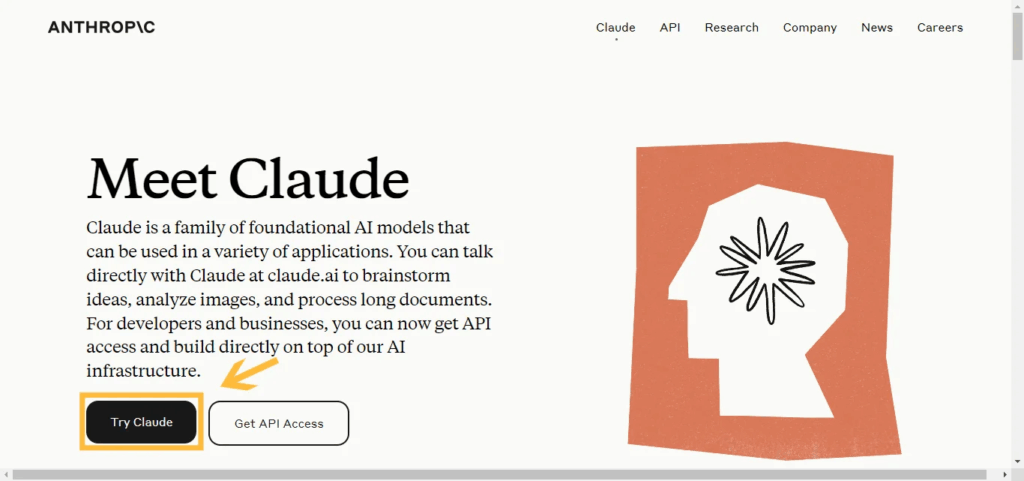
Claude AI has emerged as a powerful alternative to ChatGPT, particularly excelling in scenarios that require advanced reasoning, analysis, and handling of complex business queries. Developed by Anthropic, Claude represents the next generation of AI chatbot for business applications, offering sophisticated language understanding that rivals human-level comprehension in many scenarios. The platform’s ability to process and analyze large amounts of text, maintain context across long conversations, and provide nuanced responses makes it particularly valuable for businesses dealing with complex customer inquiries.
Among the top AI chatbot tools 2025, Claude AI stands out for its ethical framework and deep reasoning capabilities. What sets Claude apart in the conversational AI platform landscape is its emphasis on safety and alignment. The AI has been trained to be helpful, harmless, and honest, making it particularly suitable for businesses in regulated industries such as healthcare, finance, and legal services. Claude’s advanced reasoning capabilities enable it to handle multi-step problem-solving, analyze documents, and provide detailed explanations that help customers understand complex products or services.
The platform offers flexible pricing tiers, with Claude Pro available at $20 per month for individual users and Claude for Work providing team collaboration features at $25 per user per month. Enterprise pricing is available for larger organizations requiring additional security features, compliance capabilities, and volume discounts. This pricing structure makes Claude competitive with other premium AI chatbot tools while offering unique value through its advanced reasoning capabilities.
Claude’s integration capabilities allow businesses to incorporate the AI into existing workflows through APIs and custom applications. The platform supports various deployment options, from simple web-based interfaces to complex enterprise integrations that connect with customer relationship management systems, knowledge bases, and other business tools. This flexibility makes Claude an excellent choice for businesses looking to implement AI chat automation without disrupting existing processes.
3. Microsoft Copilot: Enterprise-Grade AI Integration
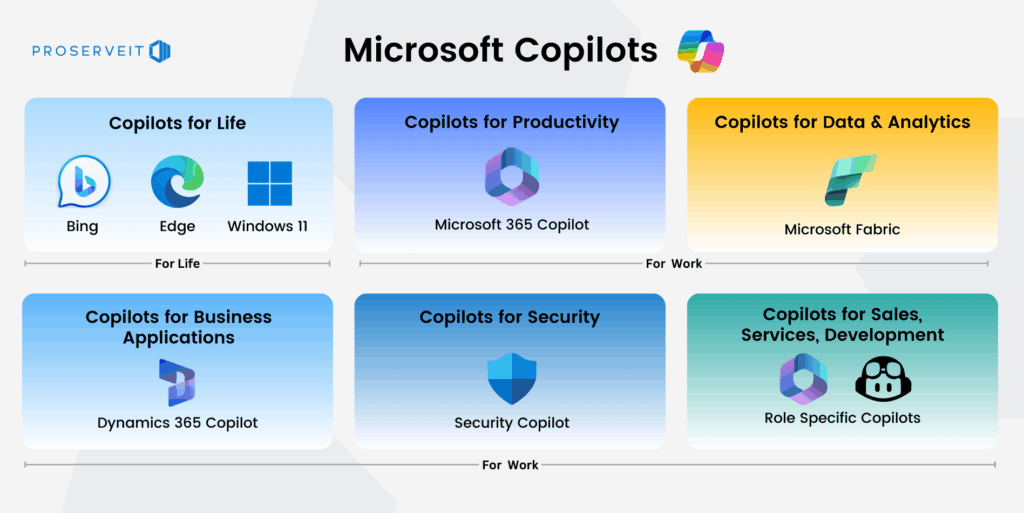
Microsoft Copilot represents the evolution of AI chatbot technology within the Microsoft ecosystem, offering seamless integration with Office 365, Teams, and other Microsoft business applications. This integration advantage makes Copilot one of the most practical AI chatbot tools for businesses already invested in Microsoft’s productivity suite. The platform leverages Microsoft’s advanced AI capabilities to provide intelligent assistance across multiple business functions, from customer service to internal operations.
As part of the leading AI chatbot tools 2025, Microsoft Copilot integrates AI directly into enterprise workflows. The strength of Microsoft Copilot lies in its deep integration with existing business workflows. Unlike standalone chatbot platforms that require separate implementation, Copilot works within familiar Microsoft applications, reducing the learning curve for both employees and customers. The AI can assist with email responses, document creation, meeting summaries, and customer inquiries, making it a comprehensive solution for businesses looking to enhance productivity across multiple areas.
Copilot’s pricing is integrated into Microsoft’s broader licensing model, with features available through various Microsoft 365 plans. The Microsoft 365 Copilot business plan starts at $30 per user per month, providing access to AI capabilities across the entire Microsoft ecosystem. This pricing model offers excellent value for businesses already using Microsoft products, as it eliminates the need for separate AI chatbot subscriptions while providing enterprise-grade features and security.
For customer service applications, Copilot can be deployed through Microsoft Teams, providing a familiar interface for both agents and customers. The AI can access company knowledge bases, previous conversation history, and customer data to provide contextual responses that resolve issues quickly and effectively. This integration capability makes Copilot particularly valuable for businesses looking to enhance their existing customer service operations without implementing entirely new systems.
4. Google Gemini: Multimodal AI for Enhanced Customer Engagement
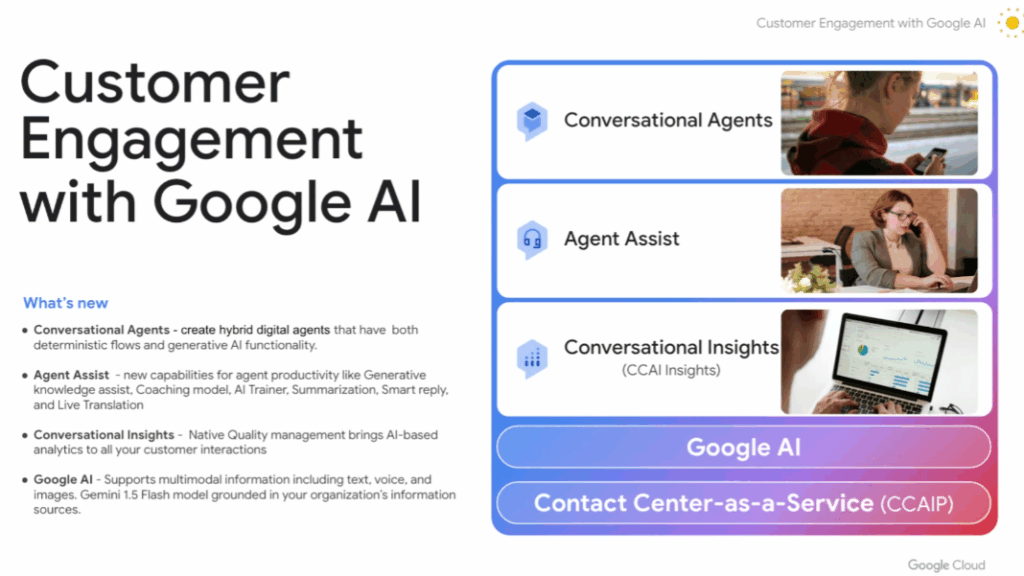
Google Gemini represents a significant advancement in AI chatbot technology, offering multimodal capabilities that enable businesses to handle text, images, audio, and video inputs within a single conversational interface. This versatility makes Gemini one of the most innovative AI chatbot apps 2025 has introduced, particularly valuable for businesses that need to provide support across multiple media types. The platform’s ability to understand and respond to various content formats opens new possibilities for customer engagement and support.
Google Gemini represents a new class of AI chatbot tools 2025 that blend multimodal interaction and cloud integration. The multimodal capabilities of Gemini enable businesses to create more engaging and effective customer interactions. Customers can share images of products, upload documents for analysis, or describe problems through voice messages, with the AI providing appropriate responses regardless of the input format. This flexibility is particularly valuable for e-commerce businesses, technical support operations, and any organization that regularly deals with visual or audio content in their customer interactions.
Gemini’s integration with Google’s broader ecosystem provides additional advantages for businesses using Google Workspace, Google Cloud, or other Google services. The AI can access and analyze data from various Google platforms, providing comprehensive responses that leverage the full range of available information. This integration capability makes Gemini an excellent choice for businesses looking to enhance their existing Google-based workflows with advanced AI capabilities.
The pricing structure for Gemini varies based on usage and integration requirements, with options ranging from pay-per-use models to enterprise subscriptions. Google offers competitive pricing that scales with business needs, making Gemini accessible to small businesses while providing the advanced features that large enterprises require. The platform’s reliability and performance are backed by Google’s robust infrastructure, ensuring consistent service delivery even during peak usage periods.
5. Intercom Resolution Bot: Specialized Customer Service Excellence
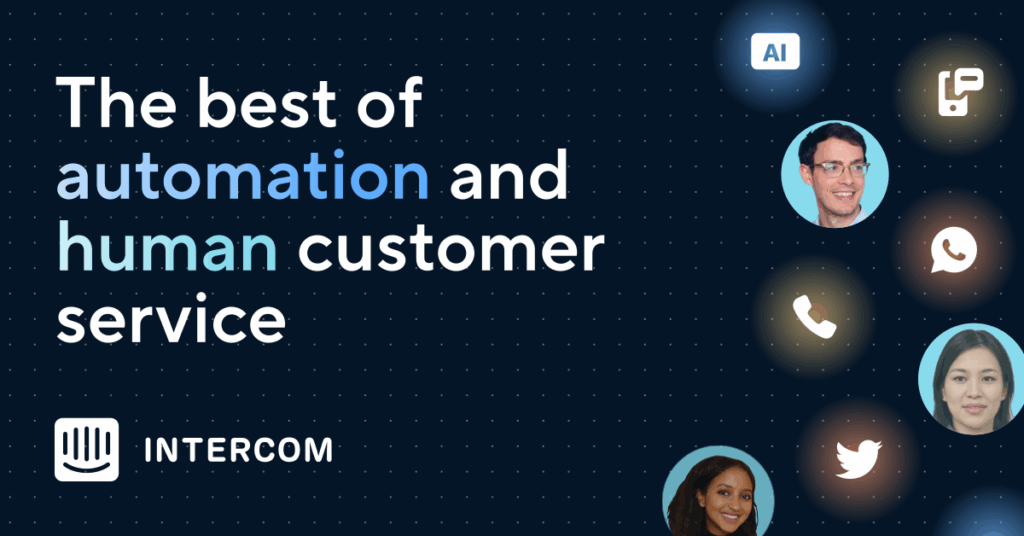
Intercom Resolution Bot stands out as a specialized AI customer service software designed specifically for businesses that prioritize exceptional customer support experiences. Unlike general-purpose AI chatbots, Intercom’s solution is built from the ground up to handle customer service scenarios, with features and capabilities tailored to resolve customer issues quickly and effectively. The platform’s focus on customer service excellence makes it one of the best AI for websites that prioritize customer satisfaction and retention.
The Resolution Bot leverages machine learning algorithms trained specifically on customer service interactions, enabling it to understand customer intent, identify issues quickly, and provide relevant solutions. The AI can handle a wide range of customer service scenarios, from simple FAQ responses to complex problem-solving that requires accessing customer account information and transaction history. This specialized approach results in higher resolution rates and improved customer satisfaction compared to generic chatbot solutions.
Intercom’s pricing model is designed to scale with business growth, starting at $99 per month for small teams and increasing based on the number of conversations and advanced features required. The platform offers excellent value for businesses that handle high volumes of customer inquiries, as the AI can significantly reduce the workload on human agents while maintaining high-quality customer interactions. The ROI for businesses implementing Intercom Resolution Bot is typically realized within the first few months of deployment.
The platform’s integration capabilities allow businesses to connect the Resolution Bot with existing customer support tools, CRM systems, and knowledge bases. This integration ensures that the AI has access to all relevant customer information and can provide personalized responses based on customer history and preferences. The seamless integration with Intercom’s broader customer communication platform makes it an excellent choice for businesses looking to enhance their existing customer service operations.
6. Drift Conversational AI: Lead Generation and Sales Acceleration
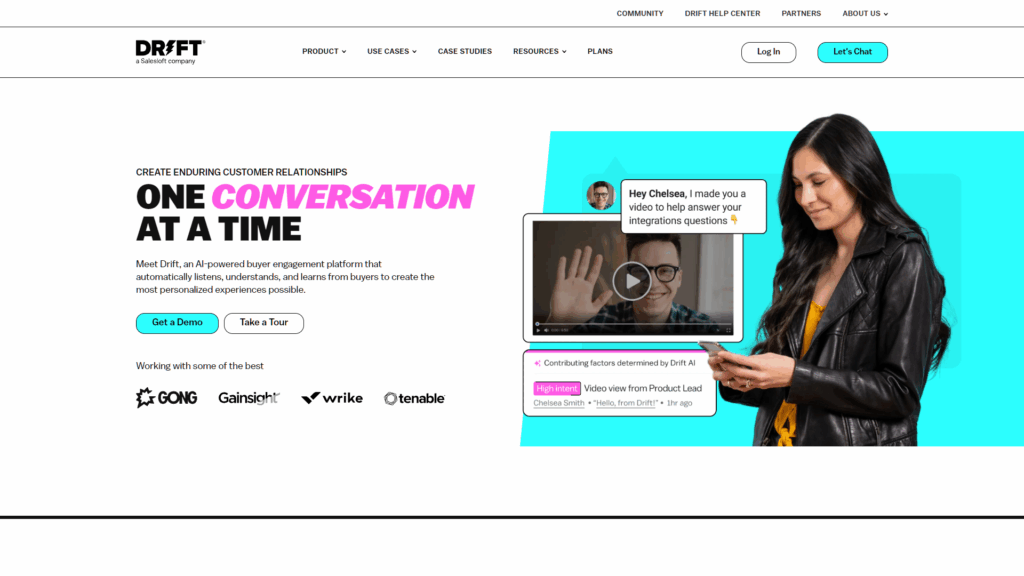
Drift has established itself as a leader in conversational marketing and sales automation, offering an AI chatbot platform specifically designed for lead generation and sales acceleration. The platform’s focus on converting website visitors into qualified leads makes it one of the most effective chatbot for lead generation solutions available in 2025. Drift’s AI combines advanced natural language processing with sophisticated lead scoring algorithms to identify high-value prospects and guide them through the sales funnel.
Drift’s unique position among AI chatbot tools 2025 comes from its deep focus on lead generation and conversion. The Drift platform excels at proactive customer engagement, using behavioral triggers and website analytics to initiate conversations with visitors at optimal moments. The AI can qualify leads based on predefined criteria, schedule meetings with sales representatives, and even provide personalized product recommendations based on visitor behavior and preferences. This proactive approach to customer engagement results in higher conversion rates and more efficient sales processes.
Drift’s pricing structure is designed to support businesses of all sizes, with plans starting at $2,500 per month for small teams and scaling up to enterprise-level packages that include advanced features like custom integrations, dedicated support, and advanced analytics. While the pricing is higher than some general-purpose chatbot tools, the specialized focus on lead generation and sales acceleration provides excellent ROI for businesses that rely on digital marketing for customer acquisition.
The platform’s integration capabilities extend beyond basic CRM connectivity to include marketing automation platforms, email marketing tools, and sales enablement software. This comprehensive integration ensures that leads captured through Drift’s AI are seamlessly transferred to existing sales and marketing workflows, maintaining momentum throughout the customer acquisition process. The platform’s analytics and reporting features provide valuable insights into lead quality, conversion rates, and overall campaign performance.
7. Zendesk AI Agents: Enterprise-Scale Customer Support
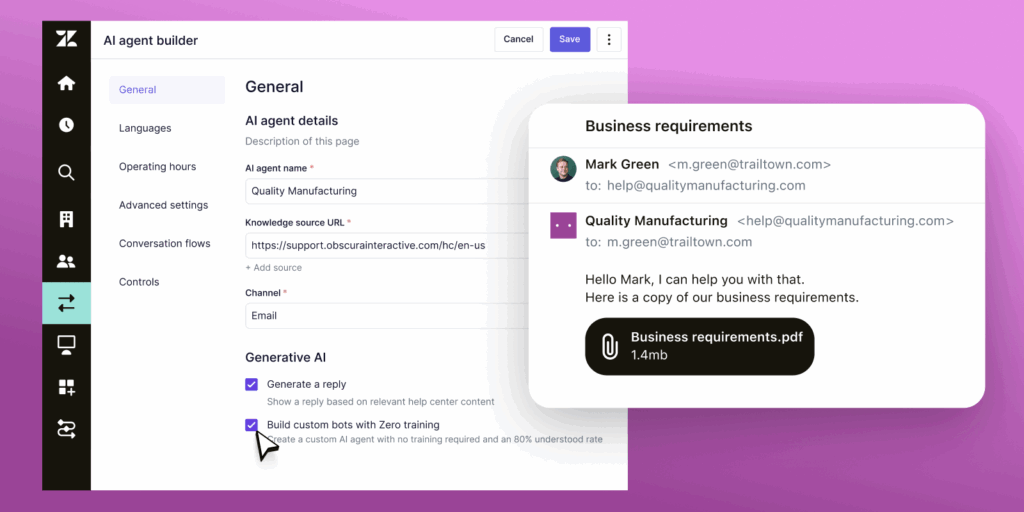
Zendesk AI Agents represent the pinnacle of enterprise-grade customer support automation, offering sophisticated AI capabilities built on a foundation of extensive customer service data and expertise. Zendesk AI agents are the most autonomous customer service bots, pre-trained on over 18 billion real interactions to handle complex requests and grasp the nuances of CX from day one. This extensive training data gives Zendesk AI a significant advantage in understanding customer needs and providing effective solutions.
The platform’s enterprise focus is evident in its advanced features, including multi-language support, complex workflow automation, and sophisticated reporting capabilities. Zendesk AI Agents can handle intricate customer service scenarios that require accessing multiple systems, analyzing customer history, and making decisions based on complex business rules. This level of sophistication makes it ideal for large organizations with complex customer service requirements and high-volume support operations.
Zendesk’s pricing for AI Agents is structured to provide value at enterprise scale, with costs typically justified by the significant reduction in support ticket volume and improved resolution times. The platform offers flexible pricing models that can be customized based on the specific needs and scale of the organization. Enterprise customers benefit from dedicated support, custom integrations, and advanced security features that meet the requirements of regulated industries.
The integration capabilities of Zendesk AI Agents are particularly impressive, with native connections to hundreds of business applications and the ability to create custom integrations through APIs. This extensive integration ecosystem ensures that the AI has access to all relevant customer and business data, enabling it to provide comprehensive support that rivals the capabilities of experienced human agents. The platform’s scalability ensures that performance remains consistent even as support volume grows.
8. Botpress: Open-Source Flexibility and Customization
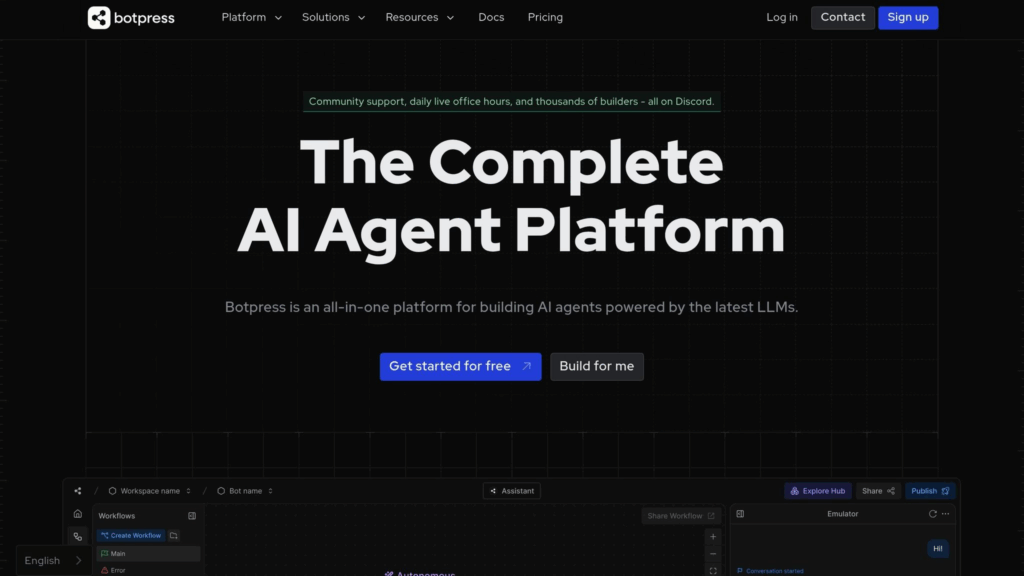
Botpress stands out in the AI chatbot landscape as a powerful open-source platform that offers unprecedented flexibility and customization options for businesses with specific requirements. Unlike proprietary solutions, Botpress provides complete control over the chatbot’s functionality, data handling, and integration capabilities, making it an ideal choice for businesses that need to maintain strict control over their AI implementations. The platform’s open-source nature also means that businesses can avoid vendor lock-in while benefiting from community-driven development and innovation.
The platform’s flexibility extends to deployment options, with businesses able to host Botpress on their own infrastructure, in private clouds, or through managed services. This flexibility is particularly valuable for businesses in regulated industries that need to maintain data sovereignty or have specific compliance requirements. Botpress supports advanced features like natural language understanding, conversation flow management, and integration with external systems, all while maintaining the transparency and control that open-source software provides.
Botpress offers both free and paid tiers, with the open-source version providing access to core features at no cost and commercial licenses available for businesses that need additional support, advanced features, or enterprise-grade capabilities. This pricing model makes Botpress accessible to businesses of all sizes, from startups experimenting with AI chatbots to large enterprises implementing complex conversational AI solutions. The ability to start with the free version and upgrade as needs grow provides excellent value and reduces implementation risk.
The platform’s extensive documentation, active community, and plugin ecosystem make it easier for businesses to customize and extend their chatbot capabilities. Botpress supports integration with popular business tools, CRM systems, and databases, while also providing the flexibility to create custom integrations for unique business requirements. This extensibility makes Botpress particularly valuable for businesses that need to integrate AI chatbots with existing systems or have specific functionality requirements that aren’t met by commercial solutions.
Comprehensive Comparison Table
The table below compares the top AI chatbot tools 2025 based on pricing, features, and ideal use cases.
| Tool | Key Features | Pricing | Best For | Platform Compatibility |
| ChatGPT Business | Natural language processing, custom training, API access | $20/user/month | General business use, content creation | Web, mobile, API integrations |
| Claude AI | Advanced reasoning, document analysis, safety-focused | $25/user/month | Complex inquiries, regulated industries | Web, API, custom applications |
| Microsoft Copilot | Office 365 integration, productivity enhancement | $30/user/month | Microsoft ecosystem users | Office 365, Teams, Windows |
| Google Gemini | Multimodal capabilities, Google integration | Variable pricing | Media-rich interactions, Google users | Google Workspace, Android, web |
| Intercom Resolution Bot | Customer service specialization, high resolution rates | $99/month+ | Customer support teams | Web, mobile, CRM integration |
| Drift Conversational AI | Lead generation, sales automation, behavioral triggers | $2,500/month+ | Sales and marketing teams | Web, mobile, marketing tools |
| Zendesk AI Agents | Enterprise-scale, 18B+ interaction training | Enterprise pricing | Large organizations, complex support | Zendesk ecosystem, API |
| Botpress | Open-source, full customization, self-hosting | Free/Custom | Developer teams, custom requirements | Self-hosted, cloud, on-premise |
Frequently Asked Questions
1. What makes AI chatbots different from traditional chatbots in 2025?
AI chatbots in 2025 leverage advanced large language models and machine learning algorithms to understand context, maintain conversation flow, and provide human-like responses. Unlike traditional rule-based chatbots that follow predetermined scripts, modern AI chatbots can handle complex, multi-turn conversations, understand intent even when questions are phrased differently, and learn from interactions to improve over time. These capabilities enable AI chatbots to resolve customer issues more effectively and provide personalized experiences that feel natural and helpful.
2. How do AI chatbot tools integrate with existing business systems?
Modern AI chatbot platforms offer extensive integration capabilities through APIs, webhooks, and pre-built connectors to popular business tools. They can connect with CRM systems to access customer data, integrate with help desk software to create tickets, sync with inventory management systems to provide real-time product information, and link to payment processors for transaction handling. This integration ensures that chatbots have access to all relevant business data and can perform actions across multiple systems, creating seamless workflows that enhance both customer experience and operational efficiency.
3. What industries benefit most from AI chatbot implementation?
AI chatbots provide value across virtually all industries, with particularly strong benefits in e-commerce, healthcare, financial services, real estate, and technology sectors. E-commerce businesses use chatbots for customer support, product recommendations, and order processing. Healthcare organizations leverage AI for appointment scheduling, symptom checking, and patient information management. Financial services companies use chatbots for account inquiries, transaction support, and financial advice. Real estate businesses benefit from lead qualification, property information, and scheduling capabilities. The versatility of modern AI chatbots makes them adaptable to almost any industry’s specific needs.
4. How much can businesses expect to save by implementing AI chatbots?
The cost savings from AI chatbot implementation vary significantly based on business size, industry, and implementation scope. Studies indicate that businesses typically see 20-30% reduction in customer service costs within the first year of deployment. For customer service operations, AI chatbots can handle 60-80% of routine inquiries without human intervention, reducing the need for large support teams. Beyond direct cost savings, businesses often see improved customer satisfaction, increased lead generation, and enhanced operational efficiency that provide additional value beyond pure cost reduction.
5. What security considerations should businesses evaluate when choosing AI chatbot tools?
Security is a critical consideration when selecting AI chatbot platforms, particularly for businesses handling sensitive customer data. Key security features to evaluate include data encryption in transit and at rest, compliance with industry standards like GDPR, HIPAA, and SOC 2, secure API connections, user authentication and authorization controls, and data residency options. Businesses should also consider the vendor’s security track record, incident response procedures, and whether the platform offers on-premise deployment options for maximum data control. Regular security audits and penetration testing should be part of the evaluation process.
6. How do AI chatbots handle multilingual customer support?
Modern AI chatbot platforms offer sophisticated multilingual capabilities that go beyond simple translation services. Advanced platforms can detect the customer’s language automatically, maintain context across different languages within a single conversation, and provide culturally appropriate responses that consider regional preferences and communication styles. Some platforms offer real-time translation capabilities, while others maintain separate language models for different regions. The quality of multilingual support varies significantly between platforms, so businesses serving international customers should prioritize testing multilingual capabilities during the evaluation process.
7. What metrics should businesses track to measure AI chatbot success?
Successful AI chatbot implementation should be measured through multiple key performance indicators that reflect both operational efficiency and customer satisfaction. Important metrics include resolution rate (percentage of inquiries resolved without human intervention), average response time, customer satisfaction scores, conversation completion rates, and cost per interaction. Businesses should also track lead generation metrics for sales-focused chatbots, including qualified leads generated, conversion rates, and revenue attribution. Advanced analytics can provide insights into common customer pain points, conversation flow optimization opportunities, and areas where human agents may still be required.
8. How will AI chatbot technology evolve beyond 2025?
The future of AI chatbot technology promises even more sophisticated capabilities, including enhanced emotional intelligence, better understanding of complex business contexts, and more seamless integration with emerging technologies like augmented reality and voice assistants. We can expect to see improved personalization capabilities, more sophisticated multilingual support, and better integration with business intelligence systems. The technology will likely become more proactive, anticipating customer needs based on behavioral patterns and providing preemptive support. Additionally, the integration of AI chatbots with Internet of Things (IoT) devices will create new opportunities for contextual, location-aware customer service.
Conclusion: Embracing the Future of Customer Engagement
Choosing the right AI chatbot tools 2025 means aligning platform capabilities with your unique business needs. The AI chatbot landscape in 2025 represents a remarkable convergence of advanced technology and practical business applications. The future of AI in customer service is promising — by 2025, AI will be at the forefront, facilitating around 95% of customer interactions. This statistic underscores the transformative impact that AI chatbot tools are having across industries, fundamentally changing how businesses interact with their customers and streamline their operations.
The eight AI chatbot tools examined in this comprehensive guide each offer unique strengths and capabilities that cater to different business needs and objectives. ChatGPT Business continues to lead with its versatility and natural language capabilities, while Claude AI excels in complex reasoning scenarios. Microsoft Copilot provides seamless integration for businesses already invested in the Microsoft ecosystem, and Google Gemini offers groundbreaking multimodal capabilities. Specialized solutions like Intercom Resolution Bot and Drift Conversational AI provide targeted functionality for customer service and lead generation, respectively. Zendesk AI Agents deliver enterprise-grade capabilities for large organizations, while Botpress offers unparalleled flexibility for businesses requiring custom solutions.
Businesses that adopt leading AI chatbot tools 2025 are setting themselves up for long-term growth, automation, and customer satisfaction. The selection of the right AI chatbot tool depends on various factors including business size, industry requirements, existing technology infrastructure, and specific use cases. Small businesses may benefit from the accessibility and ease of implementation offered by ChatGPT Business or Claude AI, while larger enterprises might require the advanced features and scalability of Zendesk AI Agents or Microsoft Copilot. Companies with specific customization requirements might find Botpress’s open-source approach most suitable, while businesses focused on lead generation and sales acceleration will likely benefit from Drift’s specialized capabilities.
The investment in AI chatbot technology extends far beyond simple cost savings. These tools are enabling businesses to provide 24/7 customer support, improve response times, increase customer satisfaction, and scale their operations without proportional increases in staffing costs. The data and insights generated by AI chatbots also provide valuable intelligence about customer preferences, common issues, and opportunities for business improvement.
As we look toward the future, the role of AI chatbots in business operations will continue to expand and evolve. The technology is becoming more sophisticated, more accessible, and more integrated with existing business systems. Companies that embrace AI chatbot technology today are positioning themselves for success in an increasingly digital and automated business environment.
The transformation of customer service and business operations through AI chatbot technology is not just a trend but a fundamental shift in how businesses operate and compete. The tools and platforms available in 2025 provide businesses with unprecedented opportunities to enhance customer experience, improve operational efficiency, and drive growth. The key to success lies in selecting the right platform, implementing it strategically, and continuously optimizing its performance to meet evolving business needs and customer expectations.
Whether you’re just beginning to explore AI chatbot technology or looking to upgrade your existing solution, the landscape of options available in 2025 offers solutions for every business need and budget. The future of customer engagement is intelligent, automated, and deeply personalized – and the tools to achieve this future are available today.
